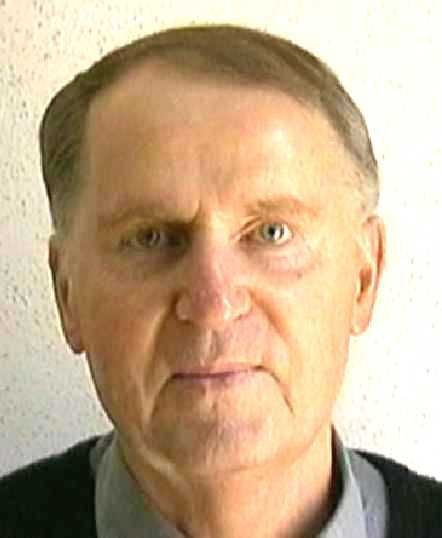Daniel Comboni
Comboni Missionaries
Institutional area
Other links
Newsletter
In Pace Christi
Soldà Antonio
Fr. Antonio Soldà was born at Asola in the province of Mantova, on 8 November, 1935. Don Tarcisio Soldà, his cousin, writes: “I have always known Fr. Antonio as a man of simple and strong faith, faith like that of his mother, Anna, and his father, Gelindo. Their little home, lost in the middle of the countryside, was able to open itself to the world. The faith and prayer of that family were woven into the rhythms and events of daily life.”
Received among the Comboni Missionaries as a boy, Antonio attended junior and senior schools at the ‘apostolic school’ at Crema, in the province of Cremona. He entered the novitiate at Gozzano in 1954 and took his first vows in 1956. He did his scholasticate in Verona and Venegono, at the same time assisting the boys of the apostolic schools. He was ordained priest on 30 March, 1963. After his ordination he was sent to Sunningdale, England, where he helped until 1967 as a teacher.
Assigned to the province of Uganda in 1967, he worked at the mission of Aliwang, Lira diocese, and at the seminary of Lacor in Gulu, where he taught for four years. He was parish priest for five years at Opit, also in Gulu diocese. Speaking of this period, in an interview with Fr. Cirillo Tescaroli, Fr. Antonio said: “In my pastoral work I endeavoured to encourage local Christian community groups and I taught them that Christ lives among them, especially in the poor, the sick and the needy.”
He was then appointed to formation in the African missionary Institute of the Apostles of Jesus in Moroto, in Karamoja (1978-1982). When it transferred to Langata, near Nairobi in Kenya, Fr. Antonio went with it to work there for another three years (1983-1986). After almost a year of specialised study in London, he was sent to the Comboni postulancy at Ongata Rongai, also in Kenya. There he spent three years as formator (1987-1990) and then thirteen years as spiritual director and professor at the new Institute of Contemplative Evangelisers (1990-2003), founded by the Comboni priest Fr. Giovanni Marengoni. In that same interview quoted above, Fr. Antonio spoke of his experience as formator of seminarians: “I believe the formation of the local clergy is the basic duty of the missionary. This is because our presence is becoming more difficult and uncertain and it is therefore necessary that we dedicate our best energy to the formation of the local clergy. If we fail in this, we shall have failed in our first duty to build up the local Church”.
Here is a paragraph from “La Cittadella” newspaper (Friday, 16 July, 2010). “Fr. Antonio used to write long letters from Kenya to his friends in Asola in which, with the spirit of a pastor, he told of the situations and sufferings of those peoples: he spoke of drought, poor harvests and social unrest. He spoke of the community of the Contemplatives which was made up entirely of Africans. With great joy he informed his friends about the first African ordinations, the number of vocations on the increase while Comboni vocations were becoming fewer. ‘Africa must be saved by the Africans’, he often repeated”.
Again from the testimony of Don Tarcisio Soldà: “He was a man of simple faith, without a lot of arguments, a strong and enthusiastic faith, a precious gift received to be given to others. That was how I found him in Langata, Kenya, at the seminary of the Apostles of Jesus. He seemed tireless, very demanding with himself and merciful to others”.
In early 2003 he had to go to Italy for treatment, first at Milan and, in late 2004, at Verona Centre, due to the onset of Parkinson’s disease. There he died on the morning of 13 July, 2010, surrounded by the affection of his sisters. His body was taken for burial to Asola, his native town.
Don Tarcisio Soldà: “In those years of his illness, whenever I would go to visit him (not nearly often enough), he would happily recall many people and events which convinced me he was a man of prayer, much prayer. In his prayers he asked the Lord to do what he could no longer do himself in Africa and in Italy. During the funeral Mass at the Mother House, I could see many sick missionaries concelebrating. Physically weakened by illness, they were not a defeated army but victorious soldiers and officers who gave their all for the Kingdom of God; faithful witnesses to the Gospel proclaimed with passion, without sparing themselves, to make the Church grow among the people. The late Pope John Paul II said that Jesus is never so powerful for our salvation than when he was on the cross. In the same way, these brothers are a strong and precious force for the Kingdom of God and the Mission. Thank you, Fr. Antonio, for your wonderful witness. Thanks, too, to the Comboni Missionary Family who assisted and accompanied him during his years of illness.”
Fr. Aleardo De Berti: “Most of Fr. Antonio’s forty seven years of priesthood were spent educating and forming young Africans in the religious and missionary life. Like Jesus, he spent his years of apostolic life forming his apostles. As a man, I had always the impression that he was good man, modest and truly noble, since he was guided by deep convictions and well-rooted values”.

